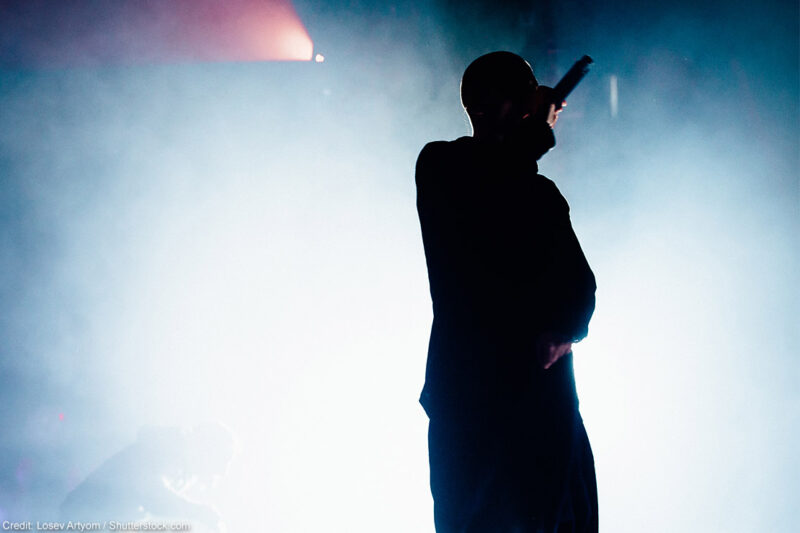Putting Rap Lyrics on Trial is a Violation of Free Speech


If song lyrics could be used as evidence in criminal trials, many of the most famous artists in history would be in serious trouble. Bob Marley sings “I Shot the Sheriff.” The Talking Heads’ biggest hit is “Psycho Killer.” The opening lines to Queen’s “Bohemian Rhapsody” are “Mama, just killed a man.” Fortunately for these artists, artistic expression is protected as free speech under the First Amendment.
However, some art forms are seen differently by many courts. Rap music, in trial after trial, has been treated as inherently incriminating. In Tennessee, an aspiring Knoxville rapper, Christopher Bassett, was convicted of the 2015 murder of Zaevion Dobson. At trial, the state showed the jury a rap video featuring Bassett as evidence against him, despite the fact that the videos were recorded months before the murder and make no mention of the victim. Prosecutors argued that Bassett’s sometimes violent and graphic imagery was a confession in song.
“Double O,” the song they claim indicated the defendant’s gang affiliation and appetite for violent retribution, includes lyrics like: “We all gon’ blow / Till we all ten toes / To the sky.”
To understand lyrics like these, they must be put in context. Bassett’s music is “drill rap,” a genre characterized by themes of gun violence, maintenance of neighborhood boundaries, and the tragedy of lives lost or taken. Nobody familiar with drill rap would raise an eyebrow at Bassett’s lyrics — they reflect the genre and its frequent use of the trope of a protagonist engaged in criminal activity. The actions described in the lyrics may sound violent, but the lyrics themselves are protected by the First Amendment.
The Supreme Court has ruled that it is unconstitutional to use protected speech as evidence when that speech is irrelevant to the case. This precedent was established in the 2013 case Dawson v. Delaware, in which the state tried to introduce the defendant’s Aryan Brotherhood tattoo as evidence in a murder trial. But because both the defendant and the victim were white, the tattoo — artistic expression protected by the First Amendment — was irrelevant. Dawson set a heightened evidentiary standard when it comes to art forms and other protected speech, whether a tattoo or a song. “Double O” does not meet this standard.
The state claims that Bassett’s lyrics prove gang affiliation, and they proposed a theory that the murder was gang-related. But it was never proven that either the victim or Bassett were actually in gangs. This accusation hasn’t been proven, and nor is it relevant. And Bassett was not charged with any gang-related offenses. The music video was entirely irrelevant to any issue before the court.
Rap is not the only genre of music with lyrics about crimes. Country music in particular frequently features lyrics glorifying criminal behavior. We see it in Nashville “outlaw” musicians like Johnny Cash, who sang he “shot a man in Reno just to watch him die.” We see it in Appalachian “murder ballads,” like Dolly Parton’s “Banks of the Ohio,” which is about a jilted lover stabbing a victim in the heart. But country lyrics are understood to be fiction, not criminal evidence. In almost every case that used music lyrics as evidence, the defendant has been Black or Latinx. Bias against rap is merely thinly-veiled bias against Black and Latinx people.
Tennessee’s use of “Double O” lyrics as evidence at trial is not only an illegal violation of constitutional free speech and free association rights, but would discourage artistic expression in the future. This is why we filed an amicus brief last week in Bassett’s appeal, challenging the admission of the rap video as evidence and asserting his right to free speech. If this precedent is allowed to stand, no one who has ever spit a rhyme is safe.



